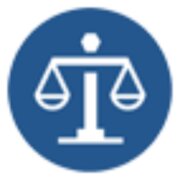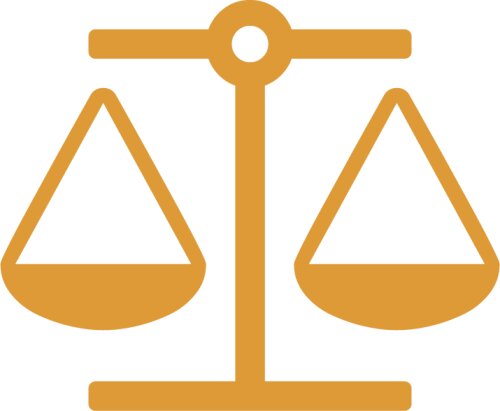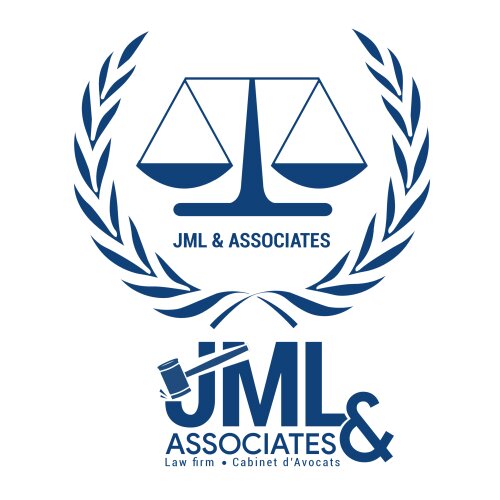Best Collaborative Law Lawyers in Kinshasa
Share your needs with us, get contacted by law firms.
Free. Takes 2 min.
Free Guide to Hiring a Family Lawyer
List of the best lawyers in Kinshasa, DR Congo
About Collaborative Law in Kinshasa, DR Congo:
Collaborative Law in Kinshasa, DR Congo is a legal process where parties work together with their lawyers to resolve disputes outside of court. It is often used in family law matters, such as divorce and child custody cases, to promote a more amicable and cooperative resolution.
Why You May Need a Lawyer:
You may need a lawyer in Collaborative Law situations to ensure your rights are protected, to negotiate fair agreements, and to navigate complex legal processes. Lawyers can also provide guidance and support throughout the collaborative process to help achieve a mutually beneficial outcome.
Local Laws Overview:
In Kinshasa, DR Congo, Collaborative Law is not as commonly practiced as in some other countries. However, the laws governing Collaborative Law may vary by jurisdiction, so it is important to consult with a local lawyer who is familiar with the legal framework in Kinshasa.
Frequently Asked Questions:
1. What is the difference between Collaborative Law and traditional litigation?
Collaborative Law focuses on resolving disputes through cooperation and negotiation, while traditional litigation involves court intervention and adversarial proceedings.
2. How long does a Collaborative Law process typically take?
The length of a Collaborative Law process can vary depending on the complexity of the issues involved and the willingness of parties to work together. It can range from a few months to over a year.
3. Are the outcomes of Collaborative Law legally binding?
Yes, the agreements reached through Collaborative Law are legally binding and can be enforced in court if necessary.
4. Can I still consult with a lawyer during the Collaborative Law process?
Yes, it is common for parties to have their own lawyers throughout the Collaborative Law process to provide legal advice and guidance.
5. What types of cases can be resolved through Collaborative Law in Kinshasa?
Collaborative Law can be used to resolve a variety of cases, including divorce, child custody, property disputes, and other family law matters.
6. How much does Collaborative Law in Kinshasa typically cost?
The cost of Collaborative Law can vary depending on the complexity of the case and the rates of the lawyers involved. It is important to discuss fees and payment structures with your lawyer upfront.
7. What are the benefits of choosing Collaborative Law over traditional litigation?
Some benefits of Collaborative Law include faster resolution, lower costs, greater control over the outcome, and the ability to maintain a cooperative relationship with the other party.
8. Can Collaborative Law be used in cases involving businesses or commercial disputes?
While Collaborative Law is more commonly used in family law matters, it can also be used in business and commercial disputes as an alternative to traditional litigation.
9. What happens if the Collaborative Law process is unsuccessful?
If the Collaborative Law process is unsuccessful, parties may need to pursue traditional litigation to resolve their dispute. However, the information shared during the collaborative process remains confidential.
10. How can I find a Collaborative Law lawyer in Kinshasa, DR Congo?
You can start by asking for recommendations from friends, family, or colleagues. You can also search online for lawyers who specialize in Collaborative Law in Kinshasa, and be sure to schedule consultations to find the right fit for your case.
Additional Resources:
For more information on Collaborative Law in Kinshasa, DR Congo, you can contact the Kinshasa Bar Association or the Ministry of Justice for guidance and resources. Additionally, the International Academy of Collaborative Professionals (IACP) offers training and resources for collaborative practitioners worldwide.
Next Steps:
If you are in need of legal assistance in Collaborative Law in Kinshasa, DR Congo, the next step is to schedule a consultation with a local lawyer who specializes in this area. They can assess your case, explain your options, and guide you through the collaborative process to achieve a positive resolution. Remember, legal advice is essential to protect your rights and interests in any collaborative dispute.
Lawzana helps you find the best lawyers and law firms in Kinshasa through a curated and pre-screened list of qualified legal professionals. Our platform offers rankings and detailed profiles of attorneys and law firms, allowing you to compare based on practice areas, including Collaborative Law, experience, and client feedback.
Each profile includes a description of the firm's areas of practice, client reviews, team members and partners, year of establishment, spoken languages, office locations, contact information, social media presence, and any published articles or resources. Most firms on our platform speak English and are experienced in both local and international legal matters.
Get a quote from top-rated law firms in Kinshasa, DR Congo — quickly, securely, and without unnecessary hassle.
Disclaimer:
The information provided on this page is for general informational purposes only and does not constitute legal advice. While we strive to ensure the accuracy and relevance of the content, legal information may change over time, and interpretations of the law can vary. You should always consult with a qualified legal professional for advice specific to your situation.
We disclaim all liability for actions taken or not taken based on the content of this page. If you believe any information is incorrect or outdated, please contact us, and we will review and update it where appropriate.













